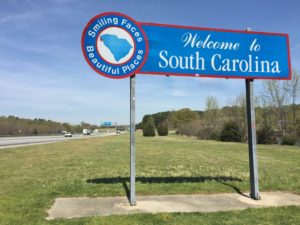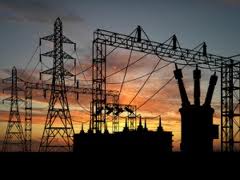13 item(s) were returned.
Clean Transportation and Communications
South Carolina Energy Office
For many years, South Carolina has actively promoted clean transportation and alternative fuels throughout the state. One leader in this effort is the Office of Regulatory Staff – Energy Office (Energy Office) and its Palmetto Clean Fuels (PCF) initiative, part of the U.S. Department of Energy Clean Cities program. PCF helps lower fuel costs, improve air quality, diversify fuel resources by reducing vehicle miles traveled, promote idle reduction and fuel economy measures, and encourage bicycle and pedestrian efforts. PCF also works to increase adoption of electric vehicles (EVs) among state agency fleets, promote EV education, and act as an EV… [more]
View InsightChief Strategy Officer and SVP for Policy
American Council On Renewable Energy (ACORE)
In lieu of consistent energy policy at the federal level, businesses and power providers are increasingly looking to state legislatures for the right signals to invest in energy. The result? States are stepping up, leading to an increase in renewable energy use, particularly by some of America’s largest companies. A quick scroll through the weekly headlines reminds us that the demand for investing in renewables today is strong – and getting stronger. Google, Walmart, GM, Lockheed Martin, Amazon and Apple all have recently shifted millions in private funding into the clean energy sector. These moves are motivated by increased revenue… [more]
View InsightState Representative
Maine State Legislature
At the December 6, 2013 Dupont Summit Conference of the Infragard EMP-SIG, presenters highlighted technologies and policy recommendations aimed at protecting the electric grid against potentially catastrophic events, such as a solar storm or the detonation of an electromagnetic pulse (EMP) weapon. An important policy question that arose from these presentations was whether electric utilities should remain the primary source of expertise and new reliability standards to mitigate risks of grid collapse and associated grid blackouts? Should states act to set state reliability standards to protect grids from solar storms and other EMP hazards, absent preemption by federal reliability standards? … [more]
View InsightState Representative
Maine State Legislature
On June 11, 2013, the State of Maine passed the first legislation in the nation to protect the electric grid against electromagnetic pulse (EMP) and geomagnetic disturbance (GMD). EMP’s, such as high-altitude nuclear explosions, and GMD’s, such as major solar flares and storms, have the potential to critically disrupt or destroy the electric grid. In March 1989, a moderate solar storm hit Quebec, Canada, causing a province-wide blackout that cost two billion dollars in direct damage, and scattered effects throughout the northeast United States. The Maine legislation that I sponsored, LD 131, “Directing the Public Utilities Commission To Examine Measures… [more]
View InsightLast week, House and Senate Appropriations Committees approved separate and distinct versions of a Fiscal Year 2013 Energy and Water Development appropriations bill. The legislation sets spending levels for DOE, among other agencies, and specific programs such as the State Energy Program (SEP). The SEP is administered by DOE, and provides funding to states for use by State Energy Offices. According to the National Association of State Energy Officers (NASEO), with “SEP funds and the resources leveraged by them, the 56 State and Territory Energy Offices develop and manage strategic programs that support the private sector in increasing energy efficiency,… [more]
View InsightCalifornia, New York, and Washington will require that large insurance companies, including some of the best auto insurance companies, operating within those states disclose how they respond, and plan to respond, to the risks posed by climate change. [New York Times] The U.S. in 2011 experienced a record number of natural disasters, and the costs of recovery – much of which will be borne by the insurance industry – are expected to exceed $50 billion. [New York Times] “We want to make sure that the financial soundness and stability of the insurance companies are not jeopardized by inadequate preparation for… [more]
View InsightAs part of the Better Buildings Initiative, the Obama Administration announced a Presidential Memorandum on December 2, 2011 directing “nearly $4 billion in combined federal and private sector energy upgrades to buildings over the next 2 years.” The Administration’s announcement states that these “investments will save billions in energy costs, promote energy independence, and, according to independent estimates, create tens of thousands of jobs in the hard-hit construction sector.” $2 billion comes from private and non-Federal commitments, from companies such as 3M, GE and Alcoa, and state and local governments such as the State of Minnesota, the District of Columbia,… [more]
View InsightNote: Synopsis based U.S. DOE summary provided to OurEnergyPolicy.org. Complete text US DOE Mission and Goals The mission of the Department of Energy is to ensure America’s security and prosperity by addressing its energy, environmental, and nuclear challenges through transformative science and technology solutions. Goal 1: Catalyze the timely, material, and efficient transformation of the nation’s energy system and secure U.S. leadership in clean energy technologies. Goal 2: Maintain a vibrant U.S. effort in science and engineering as a cornerstone of our economic prosperity with clear leadership in strategic areas. Goal 3: Enhance nuclear security through defense, nonproliferation, and environmental… [more]
View InsightNote: Synopsis based on review of draft legislation as well as Congressional committee and media summaries. Synopsis intended solely for purposes of generating discussion. Key Provisions of H.R. 910, the Energy Tax Prevention Act of 2011 (as of March 10, 2011) Would amend the Clean Air Act to prohibit the Environmental Protection Agency from regulating or taking action on greenhouse gas emissions over concerns about climate change “Greenhouse gas” is defined as: water vapor, carbon dioxide, methane, nitrous oxide, sulpher hexaflouride, hydroflurocarbons, perflurocarbons, and any other substance subject to, or proposed to be subject to, regulation, action or consideration under… [more]
View Insight[Note: The statements below are intended solely to stimulate discussion among the Expert community, and do not represent the position of OurEnergyPolicy.org. Text in italics indicates clarification or expansion.] One of the major roadblocks to the implementation of a national energy policy is the difference between federal, state and local agendas. Our energy policy is now an essential part of our national security. When it comes to “classical security” (i.e., DOD), the federal government enjoys greater power over state and local government (although not absolute). It is now time to increase the power of the federal government when it… [more]
View Insight


